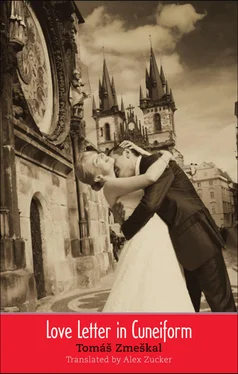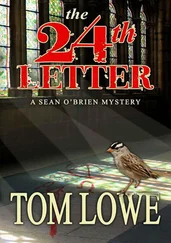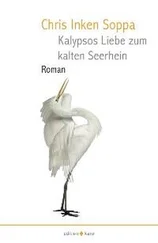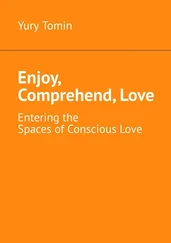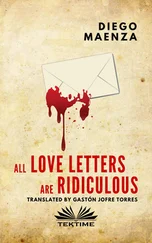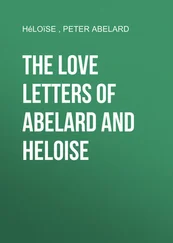“I haven’t heard that one in years, Květuška.”
“Now you’ll be able to listen to it twice a day if you want, Josífek.”
Alice didn’t like that her mom called him Josífek, so she walked up to them, looked at her mom, and said to them both: “That’s my daddy, and his name isn’t Josífek.”
Alice’s father looked at her again with that look, only this time she didn’t shudder, since she’d already experienced it once before, and she was brave, and he sat her on his lap and said: “Mommy, Alice is right.”
And she was glad he sat her on his lap, because the music coming out of the record with the man in the funny glasses on it was making her really sad, even though she also thought it sounded beautiful and inspiring, it was making her sadder and sadder. And after that all she remembered was two great big strong hands lofting her through the air and carrying her to her bed and laying her down, and two smaller hands taking off her dress and pulling her nightgown on over her head, and how she liked the feeling of lofting through the air, and even though her uncle Oldřich sometimes carried her like that, these were her daddy’s hands, and that was something totally different, and just before she fell asleep she thought she’d better ask her mommy what kind of cream to buy for her daddy’s hands, since the one her mommy had was too flowery, and he might not like that since he smelled more of tobacco, and she smelled that too as she fell asleep, even though her mommy didn’t like tobacco and anyone who smoked had to go out on the balcony, but her daddy didn’t have to go out on the balcony, she was sure of that, and that was all she remembered of that day.
The next morning when Alice woke up and looked at the clock, it was already past eight thirty. Startled, she clutched the comforter to her chest, until she realized she could hear her mommy and daddy talking in the kitchen and her mommy was laughing. She couldn’t remember her laughing like that before. At the same time Alice thought it was strange her mommy hadn’t woken her as usual. She sat up in bed, dropped her legs to the floor, and ran into the kitchen. Her mommy sat next to her daddy, her chair pushed up right next to his, holding his hand. They both smiled when they saw her, but didn’t say anything. Alice awkwardly stopped in her tracks, realizing again how late it was. She should have been in school a long time ago. Her mommy looked at her and made a face she normally only made when the two of them were alone at home. Her mommy was in a really good mood.
“Overslept, did we, Ali?” Alice just nodded a few times. She still didn’t know what to say.
“That’s all right, sweetheart. You don’t have to go to school for the rest of the week. I’ve already talked to your teacher about it.”
“Now give me a kiss,” her daddy said. Alice ran first to him, then turned to her mommy, and carefully gave them each a kiss.
Dr. Lukavský didn’t have time for the patient right away, so he filled out the forms and admitted him to the unit, but that was it. The patient brought in by the police, pastry chef Marek Svoboda, who called not only the doctor but everyone else, including the patients and orderlies, brother or sister , appeared calm and collected. There was no need to establish a diagnosis yet, the doctor still had time. The man, who introduced himself as Jesus Socrates Amenhotep Hitler though his parents had named him Marek Svoboda, was in the right place, the doctor concluded.
That afternoon he had Mr. Svoboda brought in and asked whether he could explain his new name. The pastry chef fixed his gaze on the doctor.
“I’m not sure you would understand my explanation, brother doctor.”
“First of all,” the doctor said, “I’d like you to call me just ordinary normal Dr. Lukavský.”
“But, brother doctor, doesn’t it comfort you to know that we’re all equal under the sun?” the pastry chef said.
“Mr. Svoboda, please,” the doctor said. Mr. Svoboda paused and the doctor tried again.
“Could you tell me why you changed your name, Mr. Svoboda?”
“Yes, brother doctor, I could,” said the pastry chef. “But first I would ask a brotherly favor, if you could open the window and let some of little brother wind in for us.” The doctor jotted down a note unrelated to Mr. Svoboda in the file open in front of him, laid his pen on the table, stood up, and opened the window a crack. The sound of the wind in the branches of the broad, leafy trees that lined the main road of the hospital complex penetrated the room. The pastry chef stood up, walked to the window, and stared out through the bars.
“How far is it from here to the capital, brother doctor?”
“You mean to Prague?” asked the doctor.
“Yes, brother, I mean precisely that,” said the pastry chef.
“About two and a half hours by car,” said Dr. Lukavský.
“You see, brother, two and a half hours by car, that’s a great distance, and we humans are even more distant from one another than that.”
“What do you mean?” the doctor asked.
“I knew you wouldn’t understand,” the pastry chef said.
“Do you mean the distance in human relationships?”
“I’ve hooked one and now I’m reeling her in,” the pastry chef replied.
“Mr. Svoboda, what’s going on with your wife?” the doctor asked.
“Dear brother doctor, my sister wife left me and all that remains of her is a letter good-bye.”
“Why did she leave you, Mr. Svoboda?”
“She found herself a noble lover, brother doctor,” the pastry chef replied.
“Do you have that letter, Mr. Svoboda?”
“Dear brother doctor, I ate it,” the pastry chef replied.
“Oh, I see,” the doctor said.
“Oh, I see,” the pastry chef repeated. “Now she’s let go and is floating away.”
“Pardon me?” the doctor said. “I’m not sure I understand.”
“Oh, brother doctor, brother doctor. I must reprimand you, for I sense a fraction of impatience in your voice.”
“You’re right, Mr. Svoboda. I am impatient. I have a long shift ahead of me and there are some things I’d like to find out about you.” The pastry chef, still standing at the barred window, ran his hands over his face, as if wiping off a layer of dust, walked back to the table, and sat back down in the chair facing the doctor.
“Why do you call yourself Jesus Socrates Amenhotep Hitler, Mr. Svoboda?”
“I’ve had visions, brother. I’ve had visions.”
“Visions?”
“Yes, brother. Visions.”
“What sort of visions?”
“Woeful, brother, woeful.”
“I’m not sure I understand you, Mr. Svoboda. Could you help me a little, please?”
“I’m doing what I can, brother doctor. With all my strength … with all the strength I can muster.”
“And what are these visions about, brother — I mean, Mr. Svoboda?”
“By all means call me brother, my dear brother doctor,” the pastry chef said with obvious delight. “After all, as you know, here under the sun, the moon and the various comets, we are all equal …”
“Of course we’re all equal,” the doctor said, smiling. “It says so in the constitution,” he added after a pause.
“Ah, how inappropriate, brother doctor. How inappropriate,” the pastry chef said.
“What is inappropriate, Mr. Svoboda?” asked the doctor.
“Inappropriate is inappropriate — that is inappropriate. Being ironic, sarcastic, and quoting a scrap of paper instead of an insight into the human soul, brother.”
“Oh, I see,” the doctor said. “I see,” he repeated. “I apologize if I offended you.”
“Brother doctor, a long road awaits you, a long road. The only ones we can offend are ourselves, not another or a third or fifth or seventh or eleventh or thirteenth or seventeenth …”
Читать дальше
